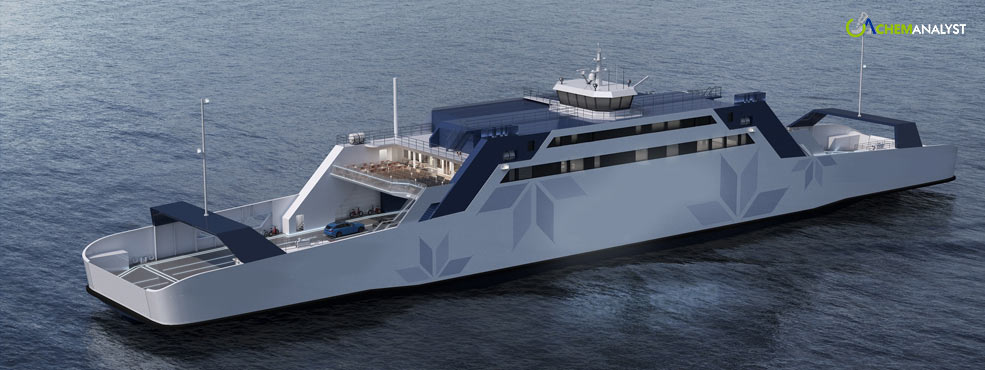Welcome To ChemAnalyst

Norwegian cleantech firm TECO 2030, in collaboration with shipbuilder Umoe Mandal, has achieved a significant milestone with the "approval of preliminary design" from the Norwegian Maritime Authority for their groundbreaking multimegawatt hydrogen fuel cell-powered high-speed vessel. This preliminary approval, a crucial step in the design and approval process, underscores the innovative approach the project is taking to revolutionize passenger transportation in the maritime sector.
The vessel design leverages Umoe Mandal's crew transfer vessel (CTV) surface effect ship (SES) technology, incorporating an air-cushion catamaran design. This configuration ensures exceptional fuel efficiency, an extensive range without the need for charging stops – a notable advantage over battery-driven vessels – and offers superior passenger comfort, especially in challenging sea conditions. The vessel, designed for passenger transportation, boasts a service speed of 35 knots, a minimum range of 160 nautical miles, and can accommodate up to 275 passengers.
Compared to existing fossil-fuelled high-speed passenger vessels, the hydrogen-fuelled vessel demonstrates a remarkable reduction of more than 55% in fuel consumption, contributing to lower operational costs. Importantly, the vessel achieves zero emissions of climate gases, aligning with the global push for sustainable and eco-friendly maritime solutions.
The "Approval of preliminary design" represents the completion of the initial phase of the comprehensive design and approval process. This process adheres to the guidelines set by the International Maritime Organization IGF-code and the "Alternative Design Process" design process. The approval positions the project for subsequent stages, demonstrating a commitment to regulatory compliance and safety standards.
Passenger transport by high-speed ferries has historically been associated with high greenhouse gas emissions per passenger kilometer. Recognizing this environmental impact, the Norwegian government is moving towards implementing a zero-emission requirement for high-speed ferries starting in 2025. The vessel designed by Umoe Mandal and TECO 2030 aligns seamlessly with these anticipated zero-emission requirements.
The project has received financial backing from the Norwegian County Municipalities of Finnmark, Nordland, Trøndelag, and Vestland. These stakeholders are actively working to secure financing for the construction and demonstration of the hydrogen-powered high-speed ferry, aligning with Norway's ambitious 2025 zero-emission requirements.
TECO 2030's Group CEO, Tore Enger, expressed enthusiasm about the preliminary approval, emphasizing the potential of the vessel to act as a catalyst for emission-free marine passenger transport. Enger also highlighted the readiness of the project to engage with interested parties. The collaborative effort between TECO 2030 and Umoe Mandal represents a pioneering step toward achieving net-zero climate goals, showcasing the pivotal role of fuel cells and hydrogen in transforming the maritime industry.
We use cookies to deliver the best possible experience on our website. To learn more, visit our Privacy Policy. By continuing to use this site or by closing this box, you consent to our use of cookies. More info.
